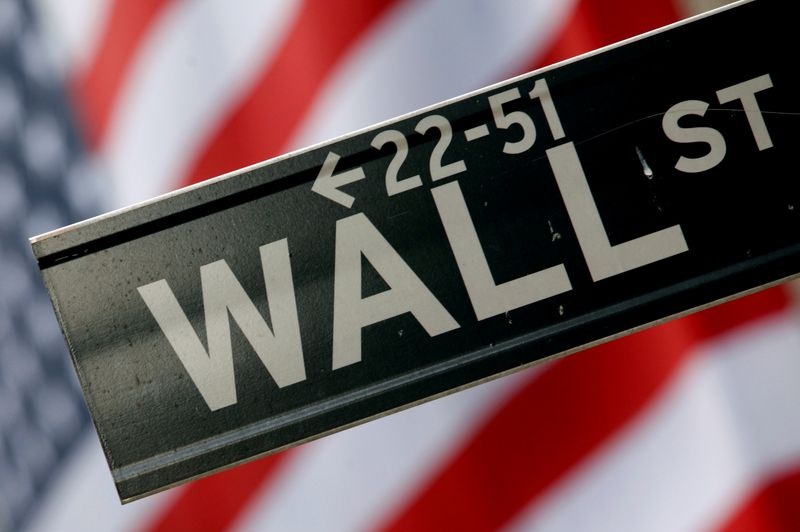Wall Street Opens Mixed as Chinese ADRs Suffer; Dow Down 140 Pts

By Geoffrey Smith
Investing.com — U.S. stock markets reopened after the long weekend in mixed fashion, with the S&P 500 reversing rapidly after opening at a new record high, while the American Depositary Receipts of Chinese companies suffered as Beijing flagged tighter controls on companies listing abroad.
By 9:40 AM ET (1340 GMT), the Dow Jones Industrial Average was down 138 points, or 0.4%, at 34,648 points, while the S&P 500 was down 0.2%. The Nasdaq Composite was up 0.2%, with Facebook (NASDAQ:FB) stock rising 0.6% to a new record high,
However, there were some sharp falls registered by Chinese ADRs, with ride-hailing giant Didi Global (NYSE:DIDI) falling 23% in response to Chinese regulators banning it from local app stores over data retention concerns. The same pressures hit online recruitment stock Kanzhun (NASDAQ:BZ), which fell 8.4%, while Pinduoduo (NASDAQ:PDD) ADRs also fell 5.3% and Baidu (NASDAQ:BIDU) ADRs fell 4.1%. Only Weibo (NASDAQ:WB) ADRs resisted the trend, spiking after a Reuters report that its chairman was drawing up plans to take it public. The stock pared gains after the company denied the report, but the stock was still up 12%.
On Tuesday, China’s State Council had issued a broad but vaguely-worded warning that it will intensify supervision of companies listing overseas, especially with regard to their data policies. That followed a Wall Street Journal report asserting that the Chinese Administration for Cyberspace had “suggested” to Didi to postpone its IPO last week, but that the company had plowed on regardless. The stock’s decline on Tuesday wiped some $18 billion off the company’s value and left it trading below its IPO price for the first time.
The Chinese moves are the latest in a growing estrangement between the U.S. and Chinese financial markets, against the background of a geopolitical rivalry that hasn’t lessened since the departure of ex-President Donald Trump.
The market was also spooked by a reversal in Crude Oil prices, on the dawning realization that any spike caused by the failure of last week’s OPEC meeting could easily be followed either by a breakdown of output discipline by the world’s biggest exporters, or by further rises in inflation that could prompt global central banks to withdraw monetary stimulus. U.S. crude futures fell 0.4% to trade again below $$75 a barrel.
Another factor weighing on sentiment was the sign that the bounce in U.S. economic activity may be flattening out, after a series of short-term economic data that have benefited from extremely weak year-earlier comparables. The Institute for Supply Management’s non-manufacturing PMI fell to 60.4 from 66.2 the previous month.
Pfizer (NYSE:PFE) stock and BioNTech (NASDAQ:BNTX) stock fell 1.3% and 5.0% respectively, after an Israeli study suggested that their Covid-19 vaccine was markedly less effective against the delta variant of the disease currently sweeping much of the world.
Among the gainers were Apple (NASDAQ:AAPL) and Amazon (NASDAQ:AMZN) stock, both of which profited from investors seeing their regulatory risk in a more charitable light, while AMC Entertainment (NYSE:AMC) stock also bucked the trend, rising 2.0% after the cinema operator scrapped a contentious plan to raise capital with a new share issue.